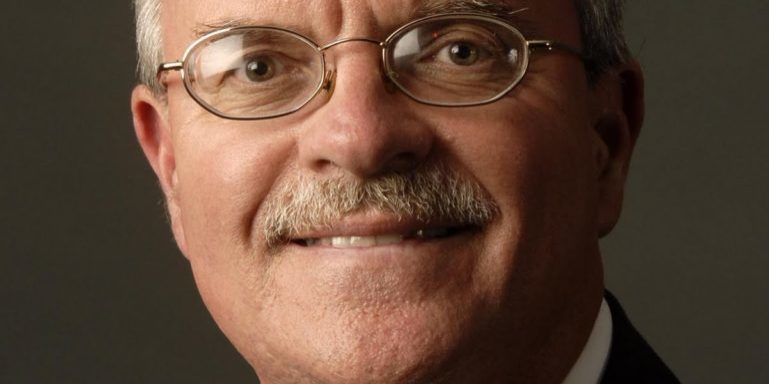
Interview with Robert Peterson
In the January issue of Credo Magazine, “In Christ Alone,” we interviewed Robert Peterson, Professor of Systematic Theology at Covenant Theological Seminary, on inclusivism. He is the Series Editor for Explorations in Biblical Theology Series, P&R and he is Co-editor, with Christopher W. Morgan, of Theology in Community Series, Crossway Publishing . He is the author of Salvation Accomplished by the Son: The Work of Christ, Calvin and the Atonement, Our Secure Salvation, Election and Free Will, Faith Comes by Hearing, among many others.
How did you first become interested in studying the subject of inclusivism?
By studying and writing concerning eternal destinies, especially hell, for many years.
What is inclusivism, how is it different than pluralism and exclusivism, and why is it important for Christians to think biblically about this issue?
Like exclusivism, inclusivism rejects pluralism, the view that all religions lead to God. Also like exclusivism, inclusivism holds that Jesus is the only Savior of humankind. But unlike exclusivism, inclusivism does not hold that one must trust Jesus as Lord and Savior in this life to be saved. Inclusivists have a variety of reasons for this position, although not all inclusivists hold to all of the reasons. It is important for Christians to think biblically about this issue because the necessity of unsaved persons hearing the gospel in this life is at stake.
Who are the major players in each camp?
There are three major inclusivists: (1) Clark Pinnock (A Wideness in God’s Mercy, now deceased) and (2) John Sanders (No Other Name) defended inclusivism as open theist Arminians. (3) Terrance Tiessen (Who Can Be Saved?) defends inclusivism as a Calvinist. Daniel Strange answered Clark Pinnock’s inclusivism in The Possibility of Salvation among the Unevangelised. Christopher Morgan and Robert Peterson co-edited Faith Comes by Hearing: A Response to Inclusivism, in which nine contributors answered the inclusivism of Terrance Tiessen.
How does Scripture answer the question, “Must a person explicitly believe the gospel of Christ in order to be saved?”
Scripture’s answer: Yes, especially based on key biblical texts such as John 14:6; Acts 4:12; Romans 10:17-18. For example, Jesus says in John 14:6, “I am the way, and the truth, and the life. No one comes to the Father except through me.” Likewise, Peter says in Acts 4:12, “And there is salvation in no one else, for there is no other name under heaven given among men by which we must be saved.”
What about those who never hear the gospel?
They are lost and therefore we need to get them the gospel. After writing Hell on Trial in 1995 I became a board member of a mission board. After co-editing Faith Comes by Hearing I began to support Trans World Radio which beams the gospel into many places where missionaries are not welcome.
Is there a category for “holy pagans” in the Bible?
No. Inclusivist Terrance Tiessen admits that all the biblical figures others have claimed to be “holy pagans” (that is, people somehow saved apart from special revelation) actually had special revelation according to scriptural witness.
What role does general and special revelation play in the debate?
Exclusivists claim that special revelation, even the gospel, is necessary for salvation. All inclusivists claim that it is possible for unsaved persons to be saved through a positive response to general revelation. The problem is Scripture does not indicate that there is such a response, e.g., in Romans 1.
Does inclusivism damage the biblical understanding of evangelism and missions?
In fairness I must admit that some inclusivists support evangelism and missions. But I am concerned that if inclusivism continues to grow, it will indeed harm evangelism and missions. Why should believers risk their lives or their children’s lives if unsaved persons do not need to hear the gospel to be saved?
How has inclusivism impacted evangelicalism today and will such a view be around in the future?
Inclusivism has indeed impacted evangelicalism today as many Christians have found it attractive. I expect it to grow in the future as more and more people base their faith on what they want to be true rather than on the teaching of Scripture, which is sometimes hard.
What advice would you give to pastors and students as they, in the words of Jude, “contend for the faith that was once for all delivered to the saints”?
I would advise them to work hard to consistently and deliberately base their beliefs on Scripture rather than on their desires. I would encourage them to love inclusivists and to treat them as they would want to be treated. I would encourage them to invest their lives in promoting the gospel of Christ at home and abroad.
Read other interviews in Credo Magazine today!
The January issue argues for the exclusivity of the gospel, especially in light of the movement known as inclusivism. This issue will seek to answer questions like: Can those who have never heard the gospel of Christ be saved? Will everyone be saved in the end or will some spend an eternity in hell? Must someone have explicit faith in Christ to be saved? Contributors include David Wells, Robert Peterson, Michael Horton, Gerald Bray, Todd Miles, Todd Borger, Ardel Caneday, Nathan Finn, Trevin Wax, Michael Reeves, and many others.
To view the magazine as a PDF Click Here

